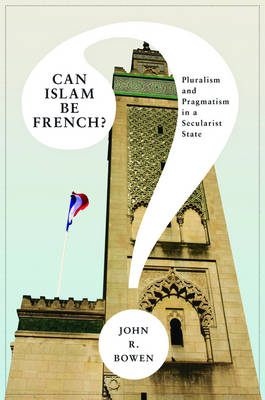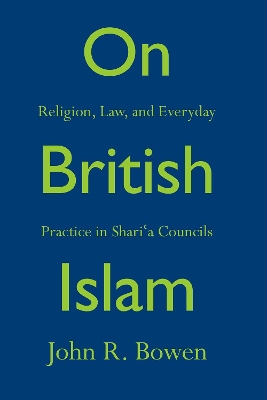Princeton Studies in Muslim Politics
2 total works
"Can Islam Be French?" is an anthropological examination of how Muslims are responding to the conditions of life in France. Following up on his book "Why the French Don't Like Headscarves", John Bowen turns his attention away from the perspectives of French non-Muslims to focus on those of the country's Muslims themselves. Bowen asks not the usual question - how well are Muslims integrating in France - but, rather, how do French Muslims think about Islam? In particular, Bowen examines how French Muslims are fashioning new Islamic institutions and developing new ways of reasoning and teaching. He looks at some of the quite distinct ways in which mosques have connected with broader social and political forces, how Islamic educational entrepreneurs have fashioned niches for new forms of schooling, and how major Islamic public actors have set out a specifically French approach to religious norms. All of these efforts have provoked sharp responses in France and from overseas centers of Islamic scholarship, so Bowen also looks closely at debates over how - and how far - Muslims should adapt their religious traditions to these new social conditions.
He argues that the particular ways in which Muslims have settled in France, and in which France governs religions, have created incentives for Muslims to develop new, pragmatic ways of thinking about religious issues in French society.
He argues that the particular ways in which Muslims have settled in France, and in which France governs religions, have created incentives for Muslims to develop new, pragmatic ways of thinking about religious issues in French society.
On British Islam examines the history and everyday workings of Islamic institutions in Britain, with a focus on shari?a councils. These councils concern themselves with religious matters, especially divorce. They have a higher profile in Britain than in other Western nations. Why? Taking a historical and ethnographic look at British Islam, John Bowen examines how Muslims have created distinctive religious institutions in Britain and how shari?a councils interpret and apply Islamic law in a secular British context. Bowen focuses on three specific shari?a councils: the oldest and most developed, in London; a Midlands community led by a Sufi saint and barrister; and a Birmingham-based council in which women play a leading role. Bowen shows that each of these councils represents a prolonged, unique experiment in meeting Muslims' needs in a Western country. He also discusses how the councils have become a flash point in British public debates even as they adapt to the English legal environment. On British Islam highlights British Muslims' efforts to create institutions that make sense in both Islamic and British terms.
This balancing act is rarely acknowledged in Britain--or elsewhere--but it is urgent that we understand it if we are to build new ways of living together.
This balancing act is rarely acknowledged in Britain--or elsewhere--but it is urgent that we understand it if we are to build new ways of living together.

